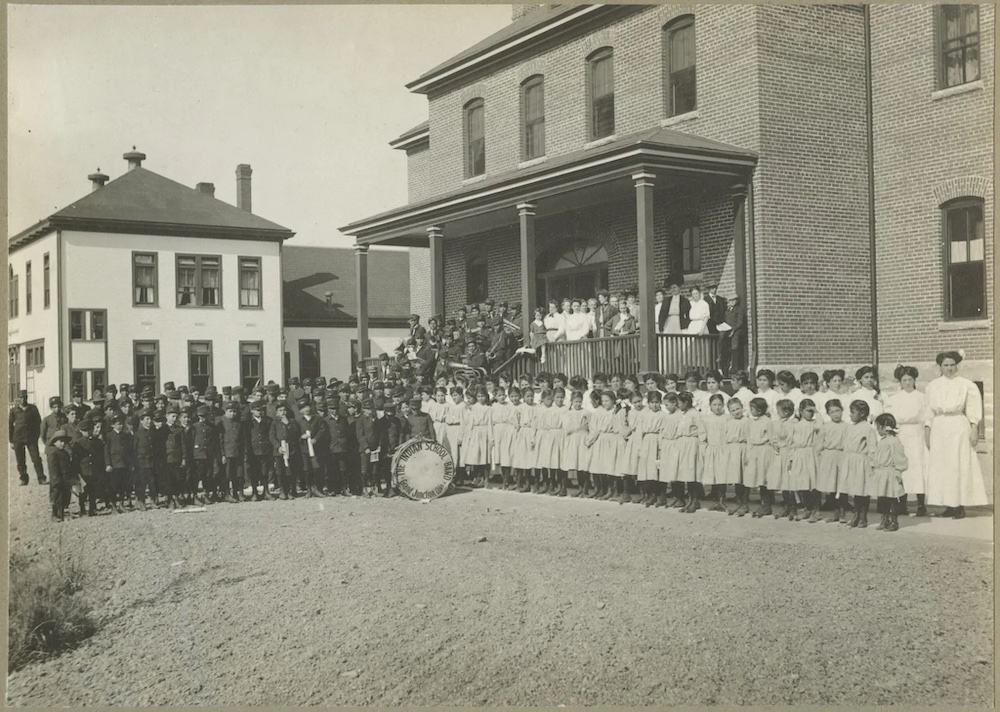
- Details
- By Chez Oxendine
- Real Estate
Here’s our monthly roundup of recent landback deals, trust acquisitions, and other noteworthy real estate news involving federally recognized tribes, Native-serving organizations, and Indigenous businesses.
LAND BACK
The Bureau of Land Management has issued a decision to convey land to the Bering Straits Native Corporation. Per a May 23 notice in the Federal Register, the appealable decision conveys roughly 93.48 acres along the Kateel River near Unalakleet, Alaska to Bering Straits.
The city of Suffolk, Va. has returned more than 70 acres to the Nansemond Indian Nation. The city’s council voted in mid-May to deed the Mattanock Town property to the tribe, per a report from publication Wavy.com. The tribe is already headquartered on the property and considers the land sacred, Chief Keith Anderson told WAVY in a May 17 story. “We celebrate this day and look forward to continue conserving and deepening our physical and spiritual connection to the land and Nansemond River,” Anderson said.
The future of the former Teller Indian School site, now the Grand Junction Regional Center, is being reconsidered with a focus on returning the property to Tribal governments, according to Colorado Public Radio (CPR). The site, historically used to assimilate Native American children, is being evaluated for transfer to the Ute Mountain Ute and Southern Ute Tribes. During a recent meeting, Southern Ute cultural preservation director Crystal Rizzo advocated for the land's return to the Tribes, emphasizing its original and rightful use. City and county officials supported the idea, highlighting the need to honor the land's history and rectify past injustices. The decision process includes a search for potential human remains, led by the Colorado School of Mines.
Legislation to deed Illinois’ Shabbona Lake State Park to the Prairie Band of Potawatomi Nation has stalled in the state’s General Assembly. The bill, HB 4718, was filed in February and aimed to convey 1,500 acres into the Prairie Band’s control. After advancing with broad support through committee, the bill stalled amid questions around acreage, reports Illinois publication The Center Square. State Representative Bradley Fritts (R-Dixon) in particular pointed to the 1829 Treaty of Prairie du Chien. That treaty promised the tribe 1,280 acres of land before federal officials later declared the land abandoned and sold it at federal auction. Fritts questioned why more acres were being given than first guaranteed. State Rep. Will Guzzardi called the extra acreage “interest on 200 years of stolen land,” but questions around the discrepancy remained. Ultimately, the bill could not reach a vote before legislators and was pulled for consideration. Legislators have now adjourned for the summer, leaving HB 4718 in temporary limbo.
TRUST LAND
The Wilton Rancheria tribe has completed a land-into-trust acquisition for around 77 acres in Wilton, Calif., reports The Sacramento Bee. The land previously fell under federal control when the Rancheria was terminated in 1959. Once the tribe was reinstated in 2009, they began the slow process of reclaiming land by purchasing it, then placing it into trust. Chairman Jesus Tarango told the Bee the land purchase was part of a “healing process” for the Rancheria.
“By far, buying our land back is our biggest flex in sovereignty to teach our young citizens the power that’s in saying that this is your land,” Tarango said. “They’re not going to come in and tell you what to do or govern it. It’s self governance, it’s ours.” Placing the 77 acres into trust brings the total acreage for Wilton Rancheria trust lands to 113, according to a separate report by indiangaming.com.
NOTEWORTHY
The Bureau of Land Management (BLM), the Yocha Dehe Wintun Nation, and the Kletsel Dehe Wintun Nation signed a co-stewardship agreement for Molok Luyuk, 20,000 acres of ancestral Wintun lands within Berryessa Snow Mountain National Monument. This agreement, following a 2022 Secretary’s Order, empowers the Wintun Nations to lead in managing and protecting their sacred lands, integrating their deep-rooted cultural, religious, and subsistence traditions into federal land management practices.
Arizona-based nonprofit Apache Stronghold will take a fight against a planned copper mine to the Supreme Court, reports Reuters. The group, composed mainly of San Carlos Apache tribal members, objects to a proposed mine by mining company Rio Tinto. The mine in question is part of the Resolution Copper Project, a partnership between Rio Tinto and Australia–based BHP Group, Ltd. If completed, Resolution Copper would supply a quarter of the United States’ copper supply. The 2,422-acre plot of land, located in federal forests northeast of Phoenix, contains a campground the Apache consider sacred. An Arizona district court first refused to block the land swap in 2021, and the Ninth Circuit refused to do so three times.
GRANT OPPORTUNITY
NDN Collective has opened its 2024 Community Self-Determination Grant applications. The Indigenous-led, Rapid City-based organization writes that the grant is meant to support development, defense, and decolonization efforts. Awarded grants provide $250,000 over two-year terms for projects such as protecting land, developing sustainable food systems, or preserving languages. The organization has $4 million in funding available. Applications are due by 5 p.m. CST on July 17.
Eligible applicants include Native American tribes, First Nations, Inuit, Metis, and Indigenous-led nonprofit organizations throughout North America, and Native Hawaiians. Applicants from Puerto Rico, American Samoa, Guam, the Northern Mariana Islands, and U.S. Virgin Islands are also eligible.
“Our intention behind the Community Self-Determination grant is to support Indigenous-led initiatives that aim to create a better present and future for all peoples and Mother Earth,” said Serene Lawrence (Anishinaabe/Hopi), NDN Foundation Program Officer. “We believe in the power and ability of Indigenous people to envision and implement solutions to address issues that impact their own communities. Oftentimes, the outcomes of these initiatives bolster the health and vitality of our blended communities, as well as the lands, waters and ecosystems that all life depends on.”
If you have news or information about landback acquisitions or deals involving tribal land, shoot me a note at [email protected].
